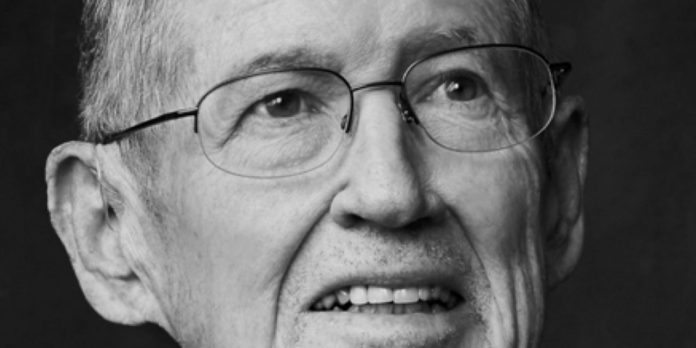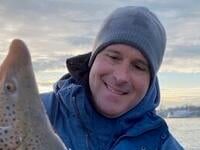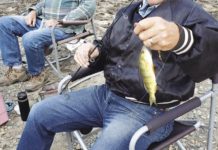Early in
Jack Grundhofer’s
40-year banking career, someone shot a gun at him while he was repossessing a car in Southern California. Later, a kidnapper tied him to a tree in Wisconsin. When he was eliminating jobs at Minneapolis-based First Bank System Inc. in the early 1990s, newspapers dubbed him “Jack the Ripper.”
Mr. Grundhofer, who grew up poor as the son of a bartender in Glendale, Calif., wasn’t easily intimidated. Through a long series of acquisitions, he created what became today’s U.S. Bancorp., the nation’s fifth-largest banking company in terms of assets.
He learned early in his career to clamp down on costs. “I’ll do whatever I have to do, however Draconian,” he told The Wall Street Journal in 1993. “Shareholders are looking for someone to protect their livelihood. You have to manage tough to survive.”
Mr. Grundhofer died Jan. 24 at his home in Indian Wells, Calif. He was 82. The cause of death was pneumonia, unrelated to Covid-19, his wife, Patti Grundhofer, said.
Soon after arriving as the new chief executive at First Bank in 1990, Mr. Grundhofer began eliminating about 20% of the workforce. Stung by criticism of his swift job cuts, he said in a letter to the Journal that he didn’t enjoy firing people. “If we had not been successful in making the tough choices to turn around this company,” he added, “there easily could have been 10,000 people out of work, instead of 2,000.”
Among the many mergers that created U.S. Bancorp was a deal in 2000 with Firstar Corp., whose CEO was his younger brother, Jerry Grundhofer.
John Francis Grundhofer, known as Jack, the oldest of three children, was born Jan. 1, 1939, and grew up in Glendale, near Los Angeles. His mother cleaned houses. His father often worked extra shifts as a bartender. The young Jack delivered newspapers and stocked shelves in a store to help pay the bills.
He rode a streetcar one hour each way to Loyola High School in Los Angeles, where he was taught by Jesuit priests. “I didn’t have great social skills,” he said later. “But I studied. I learned to give speeches.” In 1960, he earned a degree in economics at Loyola Marymount University, where he had a baseball scholarship.
Union Bank of Los Angeles hired him as a credit analyst. He moonlighted as a “repo man” tracking down people who hadn’t made their car payments. One delinquent borrower fired a gun in his direction. Mr. Grundhofer escaped, unharmed and more determined to rise into the managerial ranks.
Attending night classes, he earned an M.B.A. degree at the University of Southern California, where he graduated in 1964. He became a branch manager and worked his way up to regional vice president for Orange County before jumping in 1978 to
Wells Fargo Bank,
where he learned how to run lean operations and was one of the top officers by the late 1980s.
First Bank System, which owned Midwestern banks, recruited him as CEO in 1990. Mr. Grundhofer was shocked by the free-spending culture he found there. “It was out of control,” he told the Journal. “There were some real silly things going on around here. Anybody could sign approval for expenses.”
Along with eliminating jobs, he axed perks including golf-club memberships, company cars and office plants. During an interview, he noted that he had paid personally for the three plants in his office. Turning to his secretary, he said, “And we water them ourselves, don’t we?”
One night in September 1990, he got a shocking phone call around 3:30 a.m.: His daughter Karen Grundhofer, who was studying at the University of California, Berkeley, had suffered bullet wounds when a man opened fire in a hotel bar. Mr. Grundhofer flew home and was relieved to find she had survived.
About six weeks later came another shock: When Mr. Grundhofer drove into First Bank’s parking garage in Minneapolis, a man with a gun approached him, fastened what he said was a bomb to the executive’s wrist and ordered him to drive out of town. Using the car phone, the kidnapper made ransom demands. He then tied Mr. Grundhofer to a tree in a wooded area of Wisconsin. After wriggling free, Mr. Grundhofer walked to a farmhouse. No ransom was paid, and the case wasn’t resolved.
First Bank’s previous management, misjudging interest-rate trends, suffered major losses on government bonds in the late 1980s. “We were in a pretty dire financial situation,” said
Andy Cecere,
who joined First Bank in 1985 and now is chief executive of U.S. Bancorp. “We needed someone like Jack.”
Mr. Grundhofer put more focus on consumer and small-business banking. He also oversaw nearly three dozen acquisitions in a decade, expanding from the Midwest to Colorado and the West Coast. Those purchases included U.S. Bancorp of Portland, Ore., whose name was adopted by the Minneapolis parent company.
While Mr. Grundhofer was running U.S. Bancorp, his brother Jerry was CEO of another regional bank holding company, Milwaukee-based Firstar. Jerry Grundhofer said he and his brother occasionally talked about their work and said things like “wouldn’t it be great if we got together some day?”
Jerry Grundhofer saw his chance in 2000 after U.S. Bancorp hit a rough patch and had to downgrade earnings forecasts, hurting its share price. He called up his older brother and proposed merger talks. Those talks led to an exchange of shares valued at $18.9 billion to combine the two companies. Jerry Grundhofer served as the initial CEO of the combined company, called U.S. Bancorp, and his older brother served as chairman before retiring at the end of 2002.
In 2011, Jack Grundhofer married Patti Meier, who had served as a consultant to U.S. Bancorp. An earlier marriage ended in divorce. Mr. Grundhofer is also survived by two daughters, five grandchildren, his brother and a sister.
He owned two ranches in Montana and enjoyed fly fishing and bird hunting. His philanthropy included gifts to support the Palm Springs International Film Festival, a zoo in Palm Desert, Calif., and medical facilities in California and Montana. After retiring, he didn’t exaggerate his influence. “I used to be a big shot,” he said wryly when people asked him to pull strings.
In 1996, he told the Minneapolis Star Tribune that the violent incidents he survived had made him a better person. “My family, my kids become more important,” he said. “You have to have an ability to understand your heart. You need balance. You need to be tough. But there’s nothing wrong with a good cry.”
Write to James R. Hagerty at bob.hagerty@wsj.com
Copyright ©2020 Dow Jones & Company, Inc. All Rights Reserved. 87990cbe856818d5eddac44c7b1cdeb8
Credit: Source link































